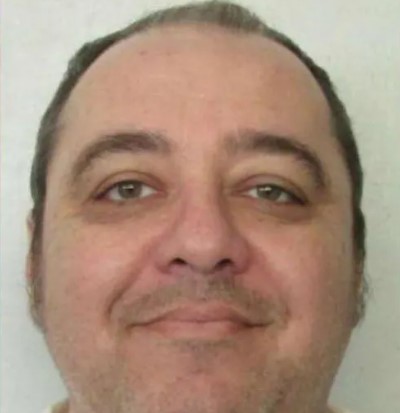
Lessons learned from Fani Willis’ incredible Georgia testimony. During a hearing called by accusations of self-dealing that might potentially jeopardize the indictment, two of the leading prosecutors in Georgia’s election subversion case against Donald Trump and fourteen of his friends revealed their sexual connection during oath on Thursday.
The continuous hearing intensified throughout the day, leading to a confrontational altercation between defense counsel and Fulton County District Attorney Fani Willis on the witness stand, which resulted in many reprimands from the court.
After several of Trump’s co-defendants revealed claims of a relationship between Willis and Nathan Wade—whom she hired in 2021 to join the prosecution team—Judge Scott McAfee called the hearing. Due to a potential conflict of interest, Trump and his co-defendants want the judge to exclude Willis’ team from the case or to dismiss the accusations.
Regarding whether Willis benefited monetarily from hiring Wade, there was discussion on the exchange of cash between the two, where they keep their money at home, how they use CashApp, and their spending patterns.
Willis is still expected to testify during the hearing on Friday. Friday is not when the judge intends to provide a decision, he stated.
The hearing, which was at times startling, uncomfortable, and remarkably intimate, left the following conclusions.
A defiant afternoon on the stand for Willis
What happened in American courtrooms on Thursday is quite unusual. In order to defend her morality and respond to inquiries about her relationship with Wade, the district attorney who has accused Trump of racketeering went under oath.
Willis’ credibility is under jeopardy, and the stakes could not be bigger.
Everything went haywire very fast. Rather from behaving like a typical witness, Willis behaved more like a prosecutor, engaging in debates with the court, defense lawyers, and expressing objections. At one point, even, she spoke up.
McAfee scolded her and the other lawyers in the courtroom several times for not acting with “professionalism” and for “talking over each other.”
Before and after the judge’s rebuke, Willis accused a few of the defense lawyers on many occasions of spreading false information.
“In this, you have lied. Pointing to printouts of documents that highlighted concerns about nepotism and self-dealing, Willis remarked to lawyer Ashleigh Merchant, “I think you lied right here.”
“I’m not in court,” Willis states
Willis took advantage of many occasions to ensure her own safety.
Up until the moment she entered the room to take the testimony, the district attorney had battled to get her to show up for both the hearing on Thursday and Wade’s continuing divorce procedures. During her opening statement, she stated that she “ran to the courtroom” because she was “very anxious” to defend herself.
It was Willis’s toughest rebuke of the day: “You think I’m on trial.” Pointing to the table of lawyers defending defendants in the criminal case, she said, “These people are on trial for trying to steal an election in 2020.” “Regardless of how much you attempt to put me on trial, I am not in court.”
The defense lawyers were later criticized by her, who labeled them as “intrusive” and “confused.”
“Ms. Merchant’s interests are contrary to democracy, not to mine,” Willis remarked, criticizing Michael Roman, the lawyer for Trump’s campaign, who is charged with being a key player in the conspiracy of many states to create “fake electors” in order to rig the Electoral College.
When did the partnership begin?
Speaking under oath, Wade maintained his earlier assertion made in a sworn affidavit filed with the court that he and Willis started dating in the beginning of 2022 and that they shared travel and vacation costs.
The assertion was refuted by Willis’s former friend and Fulton County employee, Robin Bryant-Yeartie, who stated in court that she had “no doubt” the Willis-Wade affair started in late 2019. Notably, that would have been prior to Willis appointing Wade to head the Trump investigation in late 2021.
Before 2022, when Willis and Wade claimed to have started dating, Bryant-Yeartie said she saw them “hugging, kissing, close affection.” In her testimony, she also stated that Willis had informed her that she was seeing Wade in 2020 and 2021.
Whether Wade cheated on his ex-wife by seeing Willis was a subject of some Clinton-like wordplay. She had allegedly been seeing “a married man,” according to lewd documents from Roman’s organization.
In his testimony, Wade stated that his first marriage had ended in 2015—long before he started seeing Willis—and that he was free to date since his marriage had been irretrievably shattered at that time.
Wade and Willis explain how to make reimbursements with cash
His assertions that they divided expenditures are largely unsupported by any paperwork, and Wade and Willis have provided a straightforward explanation for this. Willis took out money.
Wade reportedly paid for their two recent flights—to Miami and San Francisco—according to credit card bills produced during the divorce process. Along with extravagant travels, they also enjoyed various Caribbean cruises including vacations to Belize and the Bahamas.
In response to a question about whether he covered Willis’ vacation expenses, Wade said that Willis paid him “in cash” for a flight. Striking back against the defense’s claims that Wade was effectively receiving kickbacks from Willis on his vacations, Wade said he lacked receipts for every travel reimbursement that Willis had given him.
Wade answered, grinning a little, “I did not deposit the cash in my account.”
Asking Wade what he would do with the monetary reimbursements—thousands of dollars in at least one case—defense attorney Craig Gillen, who represents one of the fictitious electors, quizzed Wade.
You don’t possess even a single deposit slip to back up your claims that Ms. Willis gave you cash payments, do you? With a little more volume, Gillen fired back.
Gillen said, “Not a single solitary one?” in response to Wade’s “No, sir.”
Wade said, “Not a single one.”
“I don’t need anyone to pay my bills,” Willis said
The question of when the connection ended and whether it affected the decision to pursue the huge RICO charge against Trump and others in August of last year has sparked controversy.
They both stated that the romance ended in the summer of 2023. Willis hinted that although their physical relationship had ended earlier in the summer, their final “tough conversation” came later.
When Trump attorney Steven Sadow questioned Willis about the split, the response included misogynistic comments that Wade had supposedly made to Willis in the past. He “is used to women that, as he once told me, ‘the only thing a woman can do for him is make him a sandwich,'” she continued.
“The idea that ‘I am your equal’ would lead to vicious arguments,” Willis remarked. “A man is not a plan; I don’t require anything from him. A man is a friend. We had conflict in our relationship, which is why I would return his money to him.
“I don’t need anybody to foot my bills,” Willis continued.
Wade was questioned if he and Sadow had had any “personal relationship at all” since their breakup earlier in Wade’s evidence. Sadow responded, “And you know what I mean by that.”
In response, Wade questioned if Sadow meant to say, “if I had intercourse with the district attorney.”
Significant diversion from the accusations against Trump for the time being
The true accusations made against Trump, Rudy Giuliani, Mark Meadows, and the other GOP supporters who are suspected of attempting to rig the 2020 election remain unchallenged by anything that transpired on Thursday.
However, for the time being, the hearing moved the focus away from those accusations and Trump’s legal problems.
The trial date for Trump’s historic first trial in the criminal case involving hush money was set by a New York court earlier in the day for March 25. However, by the afternoon, the shocking testimony that was occurring in Atlanta and being broadcast nationally on television almost completely overshadowed that story. (Georgia courtrooms allow cameras, unlike the New York case.)
Any advantage Trump gets might be fleeting, even though Willis will take the stand again on Friday for cross-examination. In the Trump civil fraud lawsuit, which poses an existential danger to his company, a different New York court is anticipated to rule on Friday.
After concluding that Trump and his business committed serious fraud against banks and insurers by lying about his net worth and assets, state prosecutors are asking the judge to punish Trump $370 million. Their other goal is to prevent Trump from conducting business in New York.










2 thoughts on “5 Lessons learned from Fani Willis’ incredible Georgia testimony”